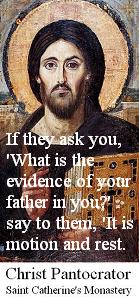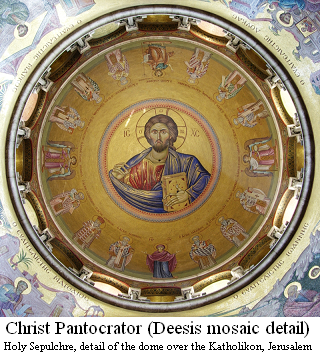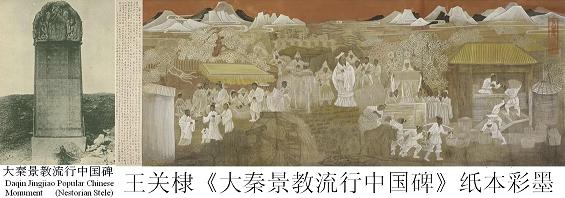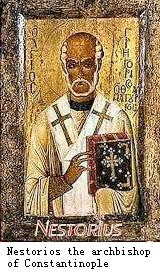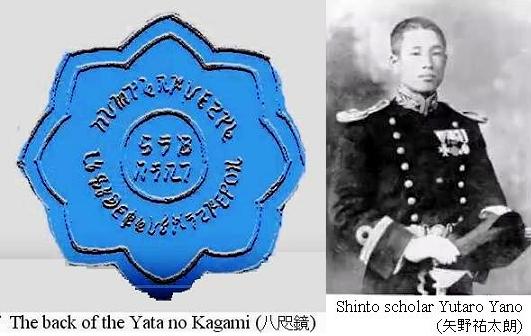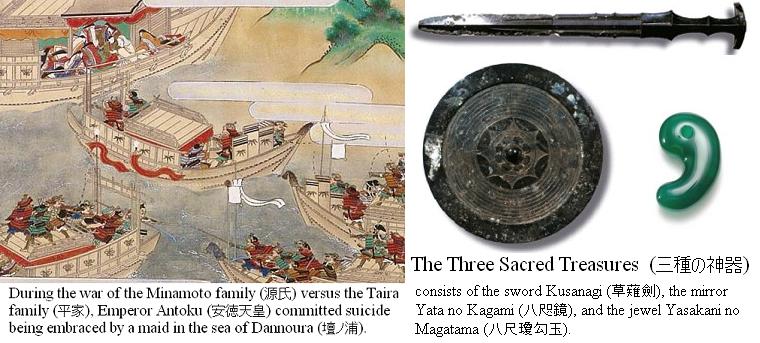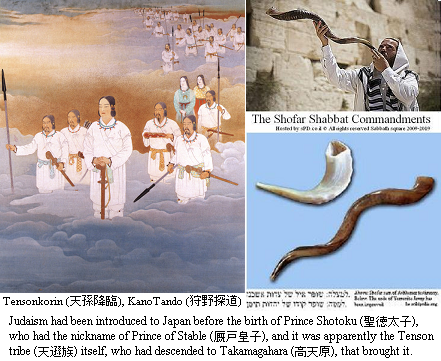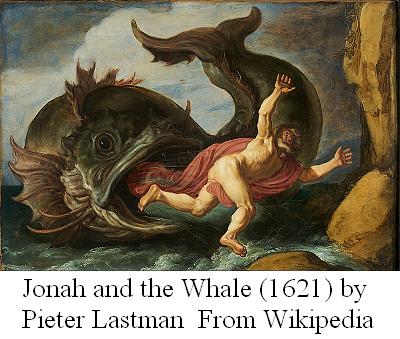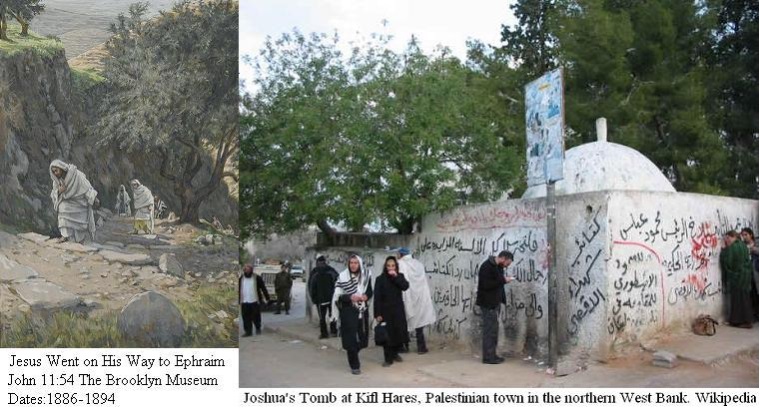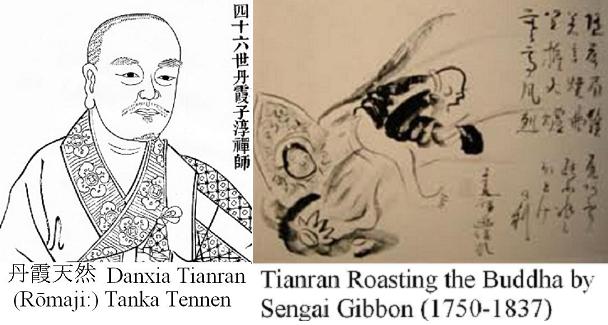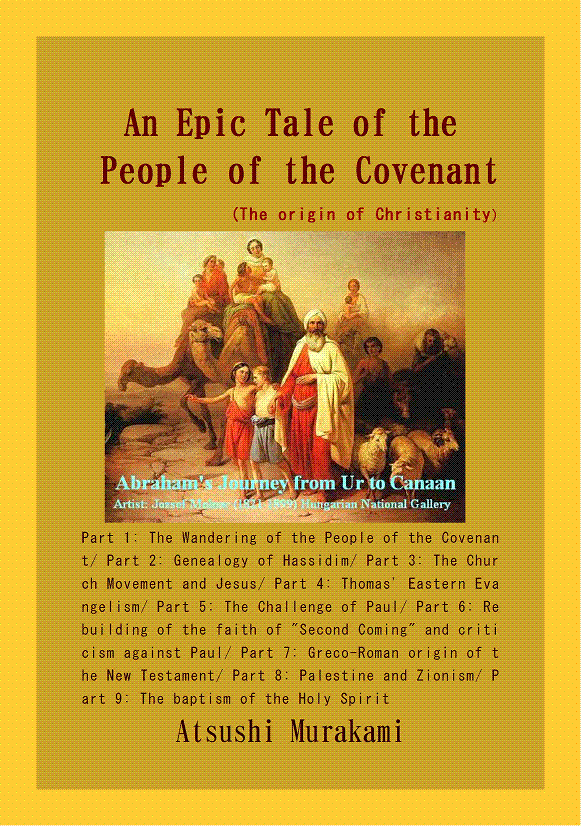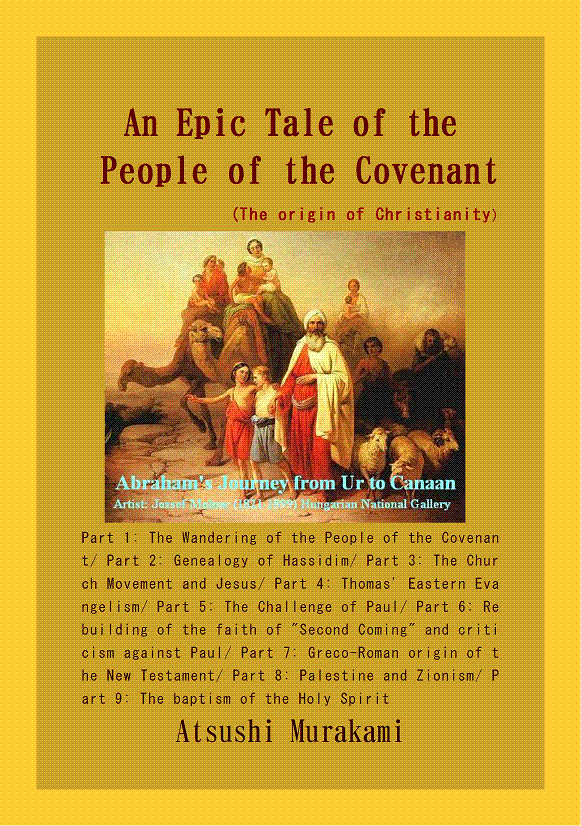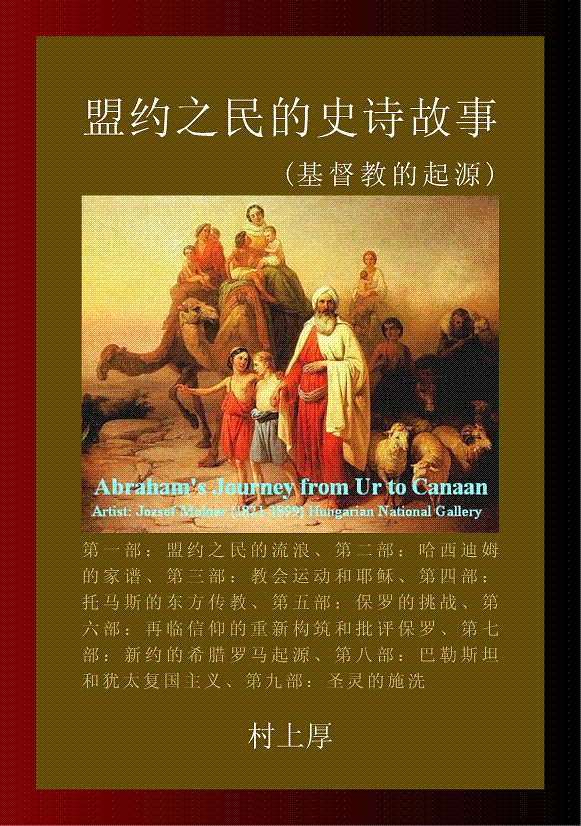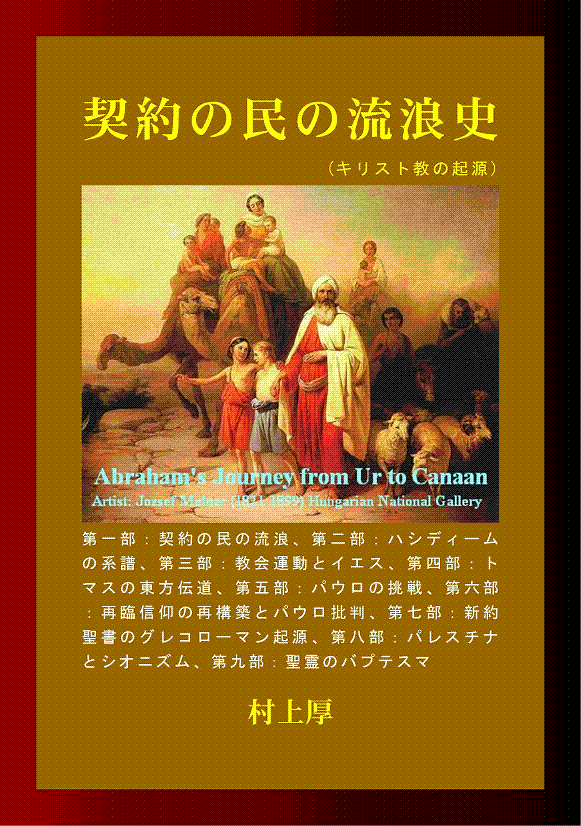Review:The baptism of the Holy Spirit (Aramaic roots III)
His disciples said to him, "When will the rest for the dead take place, and when will the new world come?" He said to them, "What you are looking forward to has come, but you don't know it." (Thomas 51) According to Mr. Sasagu Arai, author of the Japanese version of The Gospel of Thomas, the word 'rest' corresponds to the verse 50 of the Gospel of Thomas, "If they ask you, 'What is the evidence of your father in you?' say to them, 'It is motion and rest.'" And "What you are looking forward to has come," is not a "new world" but the "rest." And "it has already come" means that "the Kingdom," that is, "the restoration of original integration (propator = original Self) is already realized in those who know the Self." Then Jesus criticizes his disciples, "But you don't know it."
His disciples said to him, "Twenty-four prophets have spoken in Israel, and they all spoke of you." He said to them, "You have disregarded the living one who is in your presence, and have spoken of the dead." (Thomas 52) "Twenty-four prophets have all spoken of you" is seen to speak for the point of views of the Marcionites and the Orthodox church, that is, the authors of the twenty-four volumes of the Old Testament all spoke of Jesus. But Jesus rebuked the disciples, saying, "Do you talk about the dead in front of living me?" This is reminiscent of Zen Master DanXia TianRan (丹霞天然739-824) who said, "You are originally impeccable! Why do you need to take up a dust rag and broom?" when he was asked by a monk called CuiWei WuXue (翠微無学?-?), "What is the Teacher of all the Buddhas?"
The Eastern Christian Church
According to the social anthropologist Mr. Yoshio Sugimoto, the Syrian Church refers to the Jacobite Church in the narrow sense, which is included in the so-called monophysitism Oriental Orthodox along with churches such as Coptic, Ethiopia and Armenia. However, in a broad sense, it means the church that performs the Syrian liturgy, the Jacobite Church of the West Syrian liturgy, the Nestorian school of the East Syrian liturgy (Eastern Syrian Church = Assyrian Church), and the current Malankara Church of India (West) and Malabar Church (East). The Oriental Orthodox, together with the Nestorians, make up Eastern Churches, which, along with the Orthodox Church, are included in Eastern Christianity. And Eastern Christianity is confronting Western Catholicism and Protestantism.
Daqin Jingjiao Popular Chinese Monument (Nestorian Stele)
According to Protestant Bible commentator Mr. Arimasa Kubo, the Assyrian Eastern Church (Syrian Church) was later passed on to China and was called Jingjiao (景教: Keikyo).
In 635 AD, Alopen (阿羅本: Abraham) led 21 Jingjiao followers, headed to China and met Emperor Taizong (太宗) of the Tang (唐) Dynasty and presented a Chinese translation of the Bible. Then Jingjiao was officially authorized to propagate in China. These facts are recorded on 'Daqin Jingjiao Popular Chinese Monument (大秦景教流行中国碑: Nestorian Stele),' which was discovered in Xi'an (西安) in the 17th century by the Society of Jesus (Jesuits). However, this is an official record, and it appears that the Jinngjiao followers had been preaching in China before then. Central Asian Turks and Tatars were mass-converted to Jingjiao for some period of time. According to a second-century historian, all Tatars converted to Christianity in 129-140 AD, and Assyria became the first Christian country in the world.
It is said that Jingjiao followers had set up a language lab in Merv, Central Asia, to spread the Bible, and contributed to the establishment of Mongolian, Uyghur, Arabic, Tagalog, and Hangul letters.
By the way, Assyria had already traded with China since about 2400 BC, just after the flood of Noah, and around 1200 BC China sent a mission to Assyria. The Former Han (前漢) Dynasty sent Zhang Qian (張騫) to Dayueshi (大月氏) in 139 BC, and in 101 BC conquered the nations such as Fergana (費爾干納), Wusun (烏孫) and Hujie (呼掲) near Lake Balkhash. Jews first arrived in Kaifeng (開封) of eastern Henan province (河南省) in 231 BC, and formed a Jewish community.
Nestorians
According to Mr. Kubo, the archbishop of Constantinople, Nestorios (386-451), sought to articulate Christ's humanity by calling Mary the "Mother of Christ" rather than the "Mother of God" and conflicted with the Athanasian Trinity theory. But, he did not deny the Trinity itself. However, the Nestorians were ruled heresy by the Council of Ephesus in 431.
Jingjiao (景教Luminous Religion, Keikyo in Japanese) was called Nestorian Christianity, which was born in the 5th century, but this is incorrect, and they do not consider themselves Nestorian Christians. They saw themselves as Christians belonging to the Eastern Church with Thomas as their first Patriarch, and they did not deny the Trinity, according to Mr. Kubo.
Mystery of 'Yata no Kagami'
Interestingly, Judaism had been introduced to Japan before the birth of Prince Shotoku (聖徳太子), who had the nickname of Prince of Stable (厩戸皇子), and it was apparently the Tenson tribe (天遜族) itself, who had descended to Takamagahara (高天原), that brought it. It is said that the Imperial family of Japan originally followed Judaism, but later converted to Christianity.
In the era of Japanese Emperor Meiji, Minister of Education Arinori Mori (森有礼1847-1889) said, "I saw the words 'I AM WHO I AM (Ex. 3:14)' in Hebrew behind the mirror of Yata no Kagami (八咫鏡)," according to Mr. Kubo. Incidentally, 'Yata no Kagami' means 'eight-ta (94.16 cm) circumference mirror' and is one of the Three Imperial Regalia.
Around 1952, 'Japan-Judah Society (日猶懇話会)' was formed, with the former Navy Colonel Koreshige Inuzuka (犬塚惟重 1890-1965) as chairman. The regular meeting on January 25, 1953 was held at a Jew called Mikhail Kogan's residence in Minato-ku of Tokyo. His Highness Takahito Mikasa (三笠宮崇仁 1915-2016) was also present at this meeting. On that opportunity, Rev. Kyoichi Ozaki (尾崎喬一牧師), founder of the Toyo Mission Church Kiyome Church (東洋宣教会きよめ教会), spoke about mystery of 'Yata no Kagami' in Japanese Palace. Then, Prince Mikasa said, "I shall investigate the truth." The next day, Tokyo Evening News reported, "Prince Mikasa will investigate the Hebrew source theory of the regalia mirror!" Prince Mikasa said to the newspaper, "I can't see the mirror on my own, because even today, the Three Imperial Regalia, the mirror, the 'Yasakani no magatama (a comma-shaped jewel)' and the 'Ama no Murakumo no Tsurugi (the sacred sword)' are considered too afraid to be taken out of the deep sanctuary inside the Imperial Palace. It is unlikely that even the emperor has ever seen the mirror, so I will create my own survey based on the Imperial Household Agency's statement or dictation. ... " However, it has not been told that Prince Mikasa then announced the findings.
According to Mr. Wado Kosaka (高坂和導)'s "Super Illustration: Takeuchi Document II (超図解・竹内文書II), " Shinto priest Yutaro Yano (矢野祐太朗) went over to Ise Shrine (伊勢神宮) and asked the chief priest to show him 'Yata no Kagami' in secret, and transcribed the pattern on the back.
"I AM WHO I AM" or "Yahweh's Light"
According to Mr. Kubo, if the transcript is real, the letters in the center circle are similar to the Hebrew word "I AM WHO I AM." If 'ehyeh' is read twice, it'll be "I AM WHO I AM." But the seven characters in the circle can be read as "Yahweh's Light." The Bible says: "For with thee is the fountain of life: In thy light shall we see light (Psalm 36: 9)." As the characters of 'Yata no Kagami,' 'Yahweh's Light' seems to be more appropriate. That is why the goddess of the sun Amaterasu-omikami (天照大神) became the founder of Japan from whom the Japanese imperial family claims descent. The Psalm states, "The Lord God is a sun (Ps 84:11)."
Three Imperial Regalias are duplicated?!
In addition, if the letters around the circle are Greek letters, it means "This is a very important thing. It is a copy of 'Yata no Kagami,'" according to Mr. Kubo. "But if it is that meaning, there must be some graphic errors and omissions," he aded.
Generally, each Japanese shrine seems to have a pair of mirrors, one is real sacred body and its duplicate. The one, that is put before the altar during non-holidays, is the replica, and the real one is kept in the sanctuary and only brought out from it when the ritual is held. During the war of the Minamoto family (源氏) versus the Taira family (平家), Emperor Antoku (安徳天皇) committed suicide being embraced by a maid in the sea of Dannoura (壇ノ浦). At that time, if the Three Imperial Regalia also went to the bottom of the sea, it would be no wonder that the existing 'Yata no Kagami' is duplicate one. However, 'The Tale of Heike (平家物語)' states that among the Three Sacred Treasures (三種の神器), only the sword Kusanagi (草薙劍) was not found.
Emperor Meiji's daughter Princess Shinobu (仁内親王) told her son, Mr. Takatoshi Kobayashi (小林隆利), "My father (Emperor Meiji) said, 'I examined the history of Japan with the emperor's authority and found that Shinto (神道: a religion originating from Japan) had originally been a Jewish religion and later integrated into primitive Christianity." Mr. Kobayashi said, "The Imperial Family has been circumcised on the eighth day of one's birth. I myself also was circumcised." Emperor Meiji's grandson Mr. Kaoru Nakamaru (中丸薫) also testified, "The Emperor's family has been circumcised on the eighth day of one's birth."
The origin of the Yamato Imperial Court
A Jew named Joseph Eidelberg (1916-1985), author of 'The Biblical Hebrew Origin of the Japanese People,' states that there was a place named Yehoamato near the Lake Balkash and says that this might be the etymology of Yamato. According to Mr.Kubo, the Aramaic word 'Yehoamato' means 'Yahweh's people.' A friend of Kubo tried to buy a Jewish horn Shofar at an antique shop, and the shop owner told her "There are two types of Shofars, long and short. The long ones were used by people called 'Yehoamato,' a descendant tribe of the ancient Israelites.
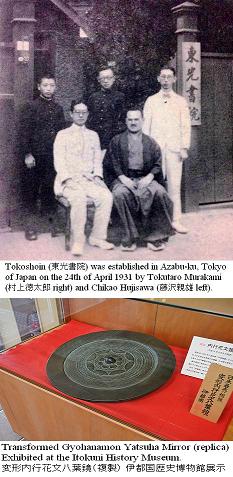
According to Mr. Joseph Eidelberg, the full name of 'Jinmu,' the first enperor of Japan, 'Kamu-yamato-iware-hiko-sumera-mikoto' is derived from the Hebrew-Aramaic words 'Kam Yamato Ivli Peko Shmelon Makto' and can be interpreted as 'The king of Samaria, the noble founder of the Hebrew nation of Yahweh.' According to Mr. Kubo, Eidelberg interprets 'iware' as 'Ivli,' but 'iware' may have come from Ephraim. If so, the name of Emperor Jinmu becomes "The king of Samaria, the noble founder of the Ephraim tribe of Yahweh.' (In other words, Ephraim, the son of the fourth generation of Joseph counting from Abraham, who had been sold off as a slave by his brothers and later become the Prime Minister of Egypt and saved the famined Israelites, was the same person of Emperor Jinmu?!)
A famous shintoist, Professor Chikao Fujisawa (藤沢親雄1893-1962), who taught at Nihon University and Kokushikan University, also believed that the roots of the Three Imperial Regalia were ancient Israel.
In 1965, a mound tomb, which was thought to be from late to last stage of Yayoi period (弥生時代), was found in Arita (有田), Itoshima City (糸島市), Fukuoka Prefecture (福岡県). A survey from 1988 to 1999 ultimately found five tombs. A total of 40 made in China and made in Japan copper mirrors, including five 46.5 cm diameter mirrors, have been unearthed from Grave No. 1. According to Archaeologist Mr. Dairoku Harada (原田大六1917-1985), who surveyed, the diameter of 46.5 cm is the same as 'Yata no Kagami (八咫鏡)' if it is converted to circle size. So he thought that the burial of the first tomb would have been Princess Tamayorihimenomikoto (玉依姫命), that is, Ohhirumenomuchi (大日孁貴). (Wikipedia) Princess Tamayorihimenomikoto is the wife of Ohokuninushinomikoto (大国主命), that is, the protagonist of the Izumo Myth (出雲神話). Ohhirumenomuchi is a synonym for Amaterasu Omikami (天照大神). In other words, Mr. Harada seems to see Amaterasu Omikami as the same god as Princess Tamayorihimenomikoto, who had originally been the priestess of Izumo.
By the way, 'Yata no Kagami,' one of 'Three Sacred Treasures,' may have been created in Japan through imitating the copper mirror which had been made in China. If Hebrew and Greek words were to have been written, it was likely that those who understood these words were involved, and that the period would coincide with the time when Jingjiao (景教) was introduced to Japan. And at that time, the Japanese imperial family may have converted from Judaism to primitive Christianity, because the Meiji Emperor said to Princess Shinobu, "Shinto had originally been a Jewish religion and later integrated into primitive Christianity." And 'primitive Christianity' may have referred to the Jacobite which was faithful to the Mosaic Law, including 'circumcision.'
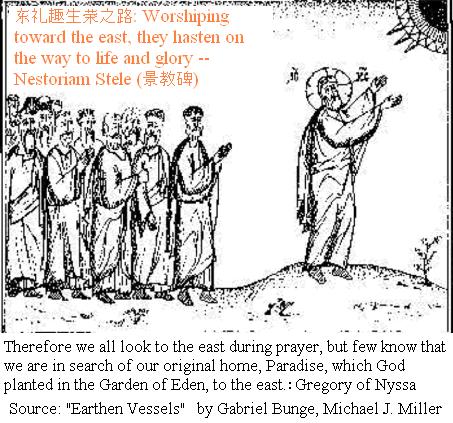
In addition, 12 vertical holes with a diameter of 70 cm existed in the southeast of the first tomb. According to the survey report, it is seen to be remains of pillars related the worship of the sun because they are located in the direction of southeast of Hyugatoge Pass (日向峠), where the tribe of Tenson (天孫族Imperial ancestors) is said to have descended. Mr. Harada said, "It is considered to be the remains of buildings related to Mogarinomiya(殯宮Mourning Palace)."
Incidentally, the ancient Israelites had a custom of worshiping toward the east. And although this practice was inherited by Christianity, it seems that the 4th century Fathers did not know why to pray eastward. For example, St. Gregorios, Bishop of Nyssa, who is said to have argued against the Arius (250 or 256–336) at the meeting of the first Council of Constantinople and to have helped to establish the doctrine of the Trinity, said, "We all look to the east during prayer, but few know that we are in search of our original home, Paradise, which God planted in the Garden of Eden, to the east." It may be the remnant of "the worship of the sun" that the Jews acquired when they moved to Egypt. It is noted in the inscription of the 'Nestorian Stele' that the Jingjiao Christians, too, practiced 'Eastern Worship.' Then, the worship of the sun in Japan, too, may have been the ancient Israel or Egyptian origin religion brought into Japan by Tenson tribe.
The sign of Jonah
In the Gospels of Matthew and Luke, Jesus, who had been asked by teachers of the law and the Pharisees to show them evidence of the Son of God after
the Beelzebul controversy, said, "This evil generation keeps asking me to show them a miraculous sign. But the only sign I will give them is the sign of Jonah (Mt 12:39, Lu 11:29)." and prophesied that he would be revived three days after the Crucifixion, just as the prophet Jonah had been in the belly of a large fish for three days and three nights.
In the Gospel of Mark, which was first compiled in the four Gospels of the New Testament, Jesus only said, "Why does this generation ask for a miraculous sign? I tell you the truth, no sign will be given to it (Mr 8:12)." Therefore the Gospels of Matthew and Luke seem to have inserted the story of Jonah in an attempt to reinforce the doctrine of Jesus' resurrection.
Prophet Jonah's career
Jonah, the protagonist and the prophet of Book of Jonah of the Old Testament, was informed by God of a plan to destroy Nineveh, the capital of the enemy country Assyria, 40 days later, and was ordered to go to Nineveh to preach repentance. However, fearing going to the enemy country, Jonah boarded a ship from Joppa and tried to flee to Tarshish.` However, the ship was wrecked in a storm. The sailors and passengers each prayed to one's own god, but Jonah was sleeping alone. Prompted by the captain to seek his God's salvation, Jonah confided all the details and said that if they sacrificed him and threw him into the sea, God's anger should melt. After failing of their attempt to get to the shore, the sailors threw Jonah into the sea. Then the storm subsided. Jonah was swallowed by the big fish and prayed in the belly of the fish three days and three nights. God let the big fish spit out Jonah to land. Then, Jonah went to Nineveh, told the residents of the city that the city would be destroyed 40 days later, and preached repentance. Then the people fasted and begged God for forgiveness. After knowing this, the king of Assyria also fasted and repented at the forefront of the people, and the disaster was prevented.
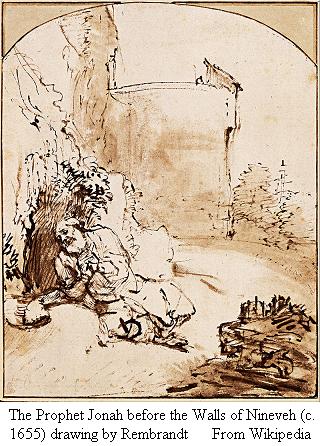
When Jonah grumbled against God because he would not have destroyed the enemy city and kept to stay the city to see what to happen to it. When Jonah was suffering from the heat in the streets of Nineveh, God grew a castor beside him and maid a shade for him. But while Jonah was pleased, God withered the castor. When Jonah was angry with God's treatment, God preached, "You have spared only one castor, why should not God spare the city of Nineveh, which has 120,000 people and countless livestock? "
From the description of Old Testament 2 Kings 14:25 that Jonah the son of Amitai prophesied the territory of the kingdom of northern Israel would be restored, and the fact that the Northern Israel actually recovered the land under the reign of Jeroboam II, it is apparent that Jonah was a prophet in the days of Jeroboam II.
Ephraim and idol worship of his descendants
Ephraim, the ancestor of the tribe of Ephraim, was born in Egypt as the second son of Joseph and his Egyptian wife who was the daughter of a priest of Egypt.
When Rehoboam, the son of Solomon, succeeded to the throne after Solomon's death, Jeroboam I, the tribe of Ephraim, who had been persecuted by Solomon and exiled to Egypt, returned. Then ten tribes of Reuben, Simeon, Dan, Naphtali, Gad, Asher, Issachar, Zebulun, Ephraim and Manasseh and some part of the Levi backed Jeroboam I and founded the kingdom of Israel (Northern Kingdom of Israel). However. Jeroboam I encouraged "the faith of the Holy Calf" brought back from Egypt. (1Ki 12:28-31)
Jeroboam II, the thirteenth king of the Northern Kingdom of Israel, gained territory comparable to Solomon's era and the country's economic prosperity culminated during his reign of 41 years, that is, the longest reign of the country but he did not change the country's idolatry tradition since Jeroboam I
Thus, the nomads Hata of Yamato and Yuzuki, allegedly located near Lake Balkhash in Central Asia, may have also maintained a conciliatory or friendly style of religion different from the exclusive monotheism of the Kingdom of Judah.
Now, even assuming that Tenson Tribe (天孫族) were descendants of Ephraim, why did the royal family hide it for more than two thousand and a few hundred years? And why was that possible? The imperial family had marital relationships with not only Soga family (蘇我氏) and Fujiwara family (藤原氏) but also many other clans. More over Genji (源氏) and Heishi (平氏), the two major sources of Samurai (侍warriors), are both originally branches of the royal family. Thus, Toyotomi Hideyoshi (豊臣秀吉), who had enforced nationwide ban on Chrisitianity, and Tokugawa Ieyasu (徳川家康), who had inherited the ban, both, too, must have known that the members of Imperial Family had been circumcised on the eighth day of one's birth. Indeed, facts are stranger than novels.
Turning one's back on all the sages
During the time of the Tang Dynasty of China (618-907), once a monk CuiWei WuXue (翠微無学?-?) came to study with Zen Master DanXia TianRan (丹霞天然739-824), he asked the master, "What is the Teacher of all the Buddhas?" TianRan is famous for roasting the wooden Buddha images to warm his backside on a frigid cold winter evening.
The master exclaimed, "The poor lived in a hovel needs to wipe and sweep with dust cloth. (You are originally impeccable! Why do you need to take up a dust rag and broom?)" WuXue retreated three steps. The master yelled, "Wrong." WuXue again came forward three steps. The master said, "Wrong. Wrong." WuXue then lifted one foot in the air, spun around in a circle, and started to go out. Master TianRan said, "Such an answer! It's turning your back on all the awakened ones." Upon hearing these words, WuXue had a clear understanding. <To be continued>
What is "Baptism with The Holy Spirit"?
According to the dialectic of the Gospel of John,
【Thesis】"A man can possess eternal life through accepting testimony of the Son of man and being baptized by him." (John 5:24)
【Anti-thesis】But "The one who comes from the earth cannot accept the testimony by one from heaven." (John 3:32)
How then can a man possess eternal life?
【Synthesis】"If you want to be baptized with the Holy Spirit, you can just go back to the word which was with God in the beginning (John 1:1) and certify that God is truthful. (John 3:33)"
When he said, "You are Huichao," Zen Master Fayan thrusted vivid Self in Huichao in front of his eyes.
Purchase here One world:AD-SEAnews
Your Comments / Unsubscribe
SEAnews Messenger
SEAnewsFacebook
SEAnews eBookstore
SEAnews world circulation
